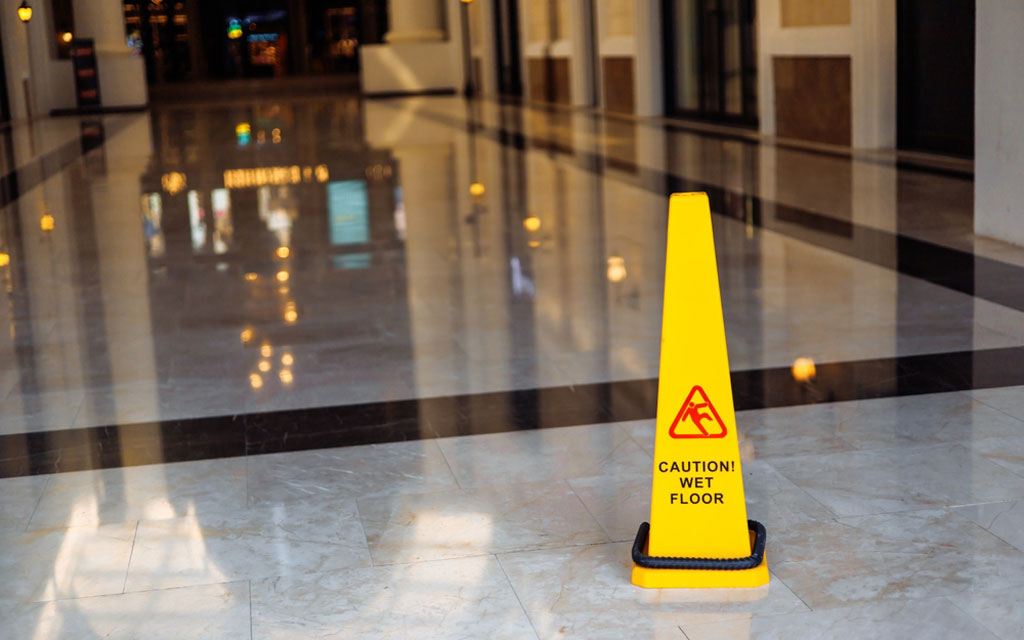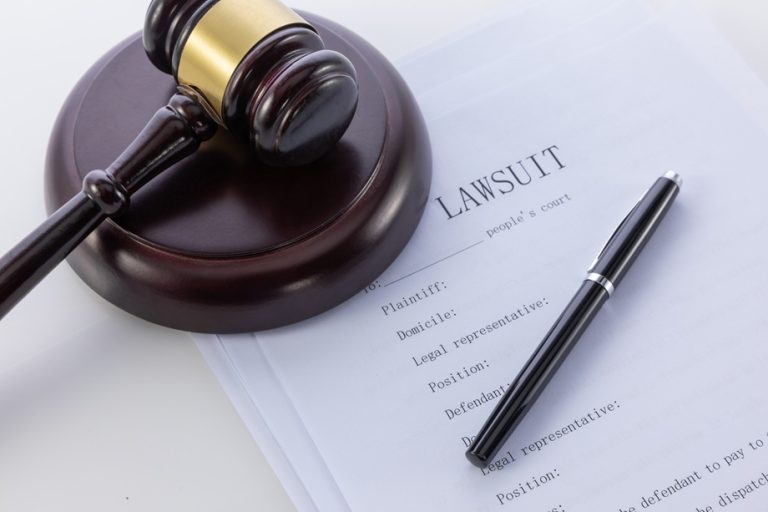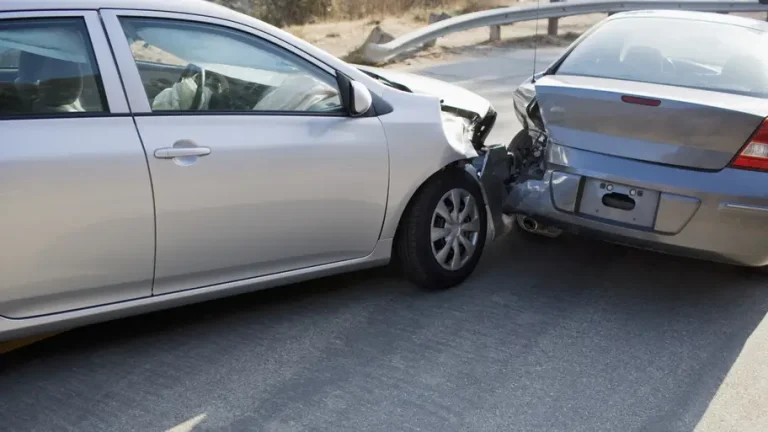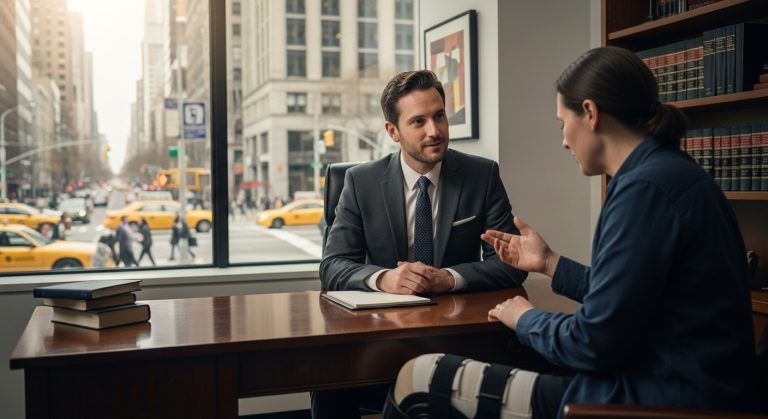Las Vegas Casino Hidden Dangers: The Leading Causes of Slip and Fall Accidents
Las Vegas casinos and hotels get millions of visitors each year, offering gambling and recreation, but often paired with hidden dangers that can lead to incapacitating injuries.
Slip and falls are among the most common personal injury lawsuits filed against Nevada casinos. Such accidents can render an injured victim with medical bills, lost time at work, and lingering physical damages.
If you slipped and fell at a Las Vegas casino or hotel, you may be looking to find out why the accident occurred, who is liable legally, and how to make the casino operator pay for what happened. This article covers the most frequent dangers, the role the law plays in your situation, and how you can defend your rights.
Why Slip and Fall Accidents Are So Common in Las Vegas Casinos
Slip and fall cases fall under Nevada’s premises liability law, which requires property owners to maintain reasonably safe conditions for guests. Casinos and hotels are high-traffic properties that operate 24/7/365. This creates unique risks and dangers to be aware of. Spilled drinks, dim lighting, uneven flooring, and crowds can all make hazards harder to avoid.
A casino’s duty of care mandates managers to clean up spills immediately, fix broken flooring, provide proper lighting, and warn guests of hazards such as wet floors or construction areas. If they fail to do so, and a guest gets hurt, the casino may be held liable and accountable.
According to the National Floor Safety Institute, slips and falls account for over one million emergency room visits each year in the United States. Las Vegas casinos, where late-night hours and alcohol consumption are commonplace, is a frequent location where slip and fall or trip and fall accidents occur.
The Most Common Hazards That Cause Casino Slip and Falls
Lawyers who represent clients who experience Las Vegas slip and fall injuries often cite the same hazards time and time again. The most common causes are:
- Wet and Slippery Floors: Drinks or ice spilled on the floor, recently mopped floors, or condensation can turn walkways into dangerous areas. Casinos often have shiny tile or marble flooring that is slippery when wet. Unless staff promptly clean the area and install warning signs while doing so, liability can ensue.
- Inadequate Hallway and Gaming Space Lighting: Casinos darken their walkways to create ambiance. Dim lighting in hallways, stairs, or bathrooms may conceal risks. Nevada law obligates property owners to maintain adequate lighting in common areas, making substandard lighting a common basis for premises liability claims.
- Ripped or Uneven Carpets: Casinos are typically heavily carpeted to help mute the noise, but carpeted surfaces deteriorate quickly under constant wear and tear. Ripped, torn, or bunched-up carpeting quickly becomes a source of tripping. A casino’s failure to replace or repair flooring can be grounds for a negligence claim.
- Uneven or Broken Stairs and Escalators: Casinos with multiple stories rely on staircases and escalators to move masses. Patrons may suffer severe falls if the steps are broken, the railings are loose, or the escalators malfunction. Maintenance records and inspection reports often become critical to determine negligence in such cases, especially once the proprietor is on notice of a hazard.
- Congested Walkways and Hindrances: Walkways in the casino are congested during rush hours. Hindrances like stopgap barriers, janitor carts, or poorly positioned slot machines can clog pathways. Oftentimes, slip and fall accidents occur in Las Vegas casinos when employees fail to ensure safe pedestrian traffic, such as by not managing crowded walkways or removing obstacles.
- Outdoor Casino Dangers Near Casino Doors: Slip and fall accidents are not limited to inside the casino. Cracked sidewalks, poorly maintained parking structures, or exposed rebar can also result in harm. Casinos have the same duty of care outdoors as indoors to ensure the property is safe for all guests.
What Types of Injuries Result from Casino Slip and Fall Accidents?
Slip and fall accidents may range from slight bruising to devastating, life-altering physical injuries. In a casino setting, marble floors may be slick, tiles loose or carpet uneven, leading to serious injuries for customers and potential premises liability claims for the properties.
Common slip and fall or trip and fall injuries include:
- Fractures (hip, wrist, or ankle fractures are common among the elderly)
- Head traumas (concussions and traumatic brain injury)
- Back and/or spinal cord trauma
- Torn ligaments or muscle strains
- Chronic soft tissue damage or injury pain
The Centers for Disease Control and Prevention (CDC) state that slips and falls are the greatest cause of traumatic brain injuries in America. Unfortunate victims of such injuries can incur months or even years of rehab, lost work, and even permanent lifestyle changes.
How Do You Prove Negligence in a Las Vegas Casino Slip and Fall?
In order to prevail on a casino slip and fall case in Las Vegas, you have to establish that the casino was ultimately negligent. Under Nevada law, you must demonstrate:
- Duty of Care: The casino was obligated to make its premises safe for patrons.
- Breach of Duty: Employees did not correct or warn of a dangerous condition.
- Causation: The danger actually caused your slip or trip and subsequent injury.
- Damages: You suffered measurable harm, such as medical bills, lost wages, or pain and suffering.
Evidence is crucial, including:
- Security videotape of the accident or hazard
- Incident reports to casino management
- Medical records linking the injury to the fall
- Witness statements from other patrons or employees
- Maintenance and inspection records
Casinos tend to have very advanced surveillance systems, and a good attorney will request the tapes in an expedited manner so they aren’t lost or erased.
What are Las Vegas Casino Slip and Fall Victims Entitled to Recover?
Victims of slip and fall cases in Las Vegas casinos can recover:
- Medical Expenses: hospital stay, operations, physical therapy
- Lost Wages: lost time from work for recovery
- Loss of Income Capacity: if the injuries reduce future capacity to work
- Pain and Suffering: bodily pain and emotional distress
- Loss of Enjoyment of Life: diminished quality of life after the accident
Settlement amounts vary widely depending on the severity of the injury, the strength of the evidence, and whether the case goes to trial. Minor cases may settle for a few thousand dollars, while severe cases involving permanent disability or brain injury may reach six or even seven figures. Complex cases may settle even higher.
Challenges in Suing a Las Vegas Casino for Slip and Fall Accidents
Though victims have a legitimate claim, casinos battle fiercely against slip and fall claims. A few common hurdles may include:
- Casinos claim that you were intoxicated when you slipped or tripped
- Arguments that the risk was “open and obvious”
- Laying blame on the victim for wearing inappropriate shoes or clothing
- Delay in reporting the accident makes it harder to prove negligence
Casinos employ entire legal teams to reduce liability. It is for this reason that it is necessary to have the services of a competent and experienced trip and fall lawyer in Las Vegas when handling the process to ensure a victim receives a settlement that will compensate them for all their injuries and losses.
How Long Do You Have to File a Slip and Fall Lawsuit in Nevada?
Nevada’s statute of limitations for personal injury claims, such as slip and fall injuries, is two years. In other words, you have two years from the date of the accident to file your case or else waive your right to recover damages.
Injured victims should move quickly to ensure video surveillance recordings, witnesses’ accounts, and maintenance records are sourced and secured in a timely manner. Getting expert legal representation promptly will help preserve important evidence and maximize the potential of your settlement.
Articles published under the Editorial Desk byline may include material from various sources and are reviewed internally to ensure clarity, factual consistency, and compliance with the site’s editorial standards. Content is published for general informational purposes only and follows applicable content and publishing guidelines




